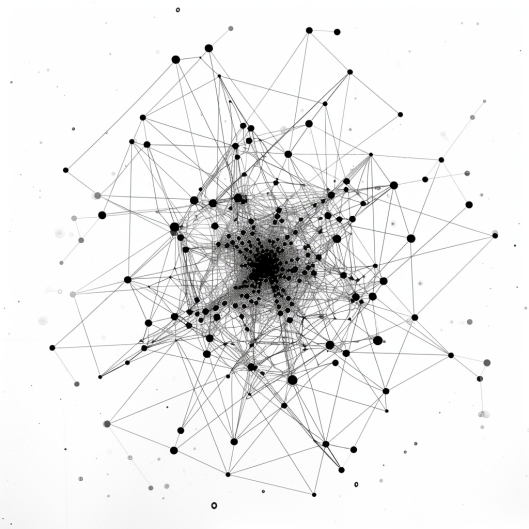Abstract
This research focused on assessing the reliability of the Jouve Cerebrals Test of Induction (JCTI), a computerized 52-item test measuring nonverbal reasoning without time constraints. The reliability of the test was determined through Cronbach’s Alpha coefficients and standard errors of measurement (SEm), calculated across various age groups. A total of 1,020 individuals participated in the study, and comparisons were made between the JCTI and other cognitive tests, such as the Advanced Progressive Matrices (APM) and the Comprehensive Test of Nonverbal Intelligence – Second Edition (CTONI-II). The findings indicate that the JCTI displays a high degree of internal consistency, supporting its validity as a tool for cognitive evaluation and individual diagnosis.
Keywords: Jouve Cerebrals Test of Induction, JCTI, reliability, Cronbach’s Alpha, nonverbal reasoning, cognitive evaluation
Introduction
Psychological and educational assessments are essential in evaluating cognitive abilities and identifying learning or cognitive difficulties. Test reliability plays a key role in ensuring accurate measurements and interpretations (Aiken, 2000; Nunnally & Bernstein, 1994). This study aimed to assess the reliability of the Jouve Cerebrals Test of Induction (JCTI), a 52-item computerized test of nonverbal reasoning. Cronbach’s Alpha coefficients and standard errors of measurement (SEm) were calculated for various age groups to determine the internal consistency of the JCTI.
Method
Participants
A total of 1,020 individuals participated in the study. Of these, 80% voluntarily completed the JCTI online. The sample consisted of 265 females (25.6%), 675 males (66.2%), and 80 individuals with unspecified gender (7.8%). In terms of language diversity, 46.7% of participants were native English speakers, followed by 11% French, and 5.2% German speakers. Other languages, including Spanish, Portuguese, Swedish, Hebrew, Greek, and Chinese, were also represented, though each accounted for less than 5% of the sample. The demographic diversity in gender, language, and age allowed for a representative assessment. The data were analyzed across age groups to compute Cronbach’s Alpha and the SEm.
Procedure and Statistical Analysis
The internal consistency of the JCTI was determined using Cronbach’s Alpha. SEm values were derived from these alphas and the sample’s standard deviations. The JCTI’s reliability was then compared with that of other assessments, including the Advanced Progressive Matrices (APM) and the CTONI-II (Hammill et al., 2009).
Results
The reliability measures for the JCTI are summarized in Table 1. The internal consistency was high, with Cronbach’s Alpha values ranging from .92 to .96, with an overall alpha of .95 for the full sample. The standard error of measurement (SEm) values ranged between 2.57 and 2.74, with a mean value of 2.63. These results affirm the JCTI as a reliable measure for both individual diagnoses and cognitive evaluations.

Discussion
The JCTI demonstrated a strong internal consistency, suggesting that it is an effective tool for cognitive assessment, particularly when compared with other established measures, such as the APM (Raven, 1998) and the CTONI-II (Hammill et al., 2009). The APM’s reliability coefficients typically range from .85 to .90, while the CTONI-II shows estimates of .83 to .87 for subtests and up to .95 for composite scores. The JCTI’s Cronbach’s Alpha values, ranging from .92 to .96, place it at a comparable or higher level of reliability, highlighting its suitability for educational and psychological use.
Additionally, the consistent performance of the JCTI across various age groups enhances its utility in diverse educational and psychological contexts.
One limitation of the current study is the reliance on Cronbach’s Alpha to measure internal consistency. Expanding future research to include other reliability measures, such as test-retest reliability, could provide a more comprehensive understanding of the JCTI’s psychometric properties. Additionally, since participation was voluntary, self-selection bias could influence the generalizability of the findings.
Conclusion
This study assessed the reliability of the Jouve Cerebrals Test of Induction (JCTI) by calculating Cronbach’s Alpha coefficients and standard errors of measurement (SEm) for various age groups. Results showed high internal consistency, indicating that the JCTI is a dependable tool for cognitive assessment and individual diagnosis. When compared with other established assessments like the APM and CTONI-II, the JCTI’s reliability was found to be favorable, supporting its potential application in educational and psychological evaluation settings.
References
Aiken, L. R. (2000). Psychological testing and assessment (10th ed.). Needham Heights, MA: Allyn & Bacon.
Nunnally, J. C., & Bernstein, I. H. (1994). Psychometric theory (3rd ed.). New York: McGraw-Hill.
Raven, J., Raven, J. C., & Court, J. H. (1998). Raven Manual: Sec. 4. Advanced Progressive Matrices (1998 ed.). Oxford: Oxford Psychologists Press.
Zhai, H. (1999). The analysis of Raven’s Advance Progressive test in Chinese national public officer test. Psychological Science, 22(2), 169–182.
Hammill, D. D., Pearson, N. A., & Wiederholt, J. L. (2009). Comprehensive Test of Nonverbal Intelligence (2nd ed.). Austin, TX: Pro-Ed.










